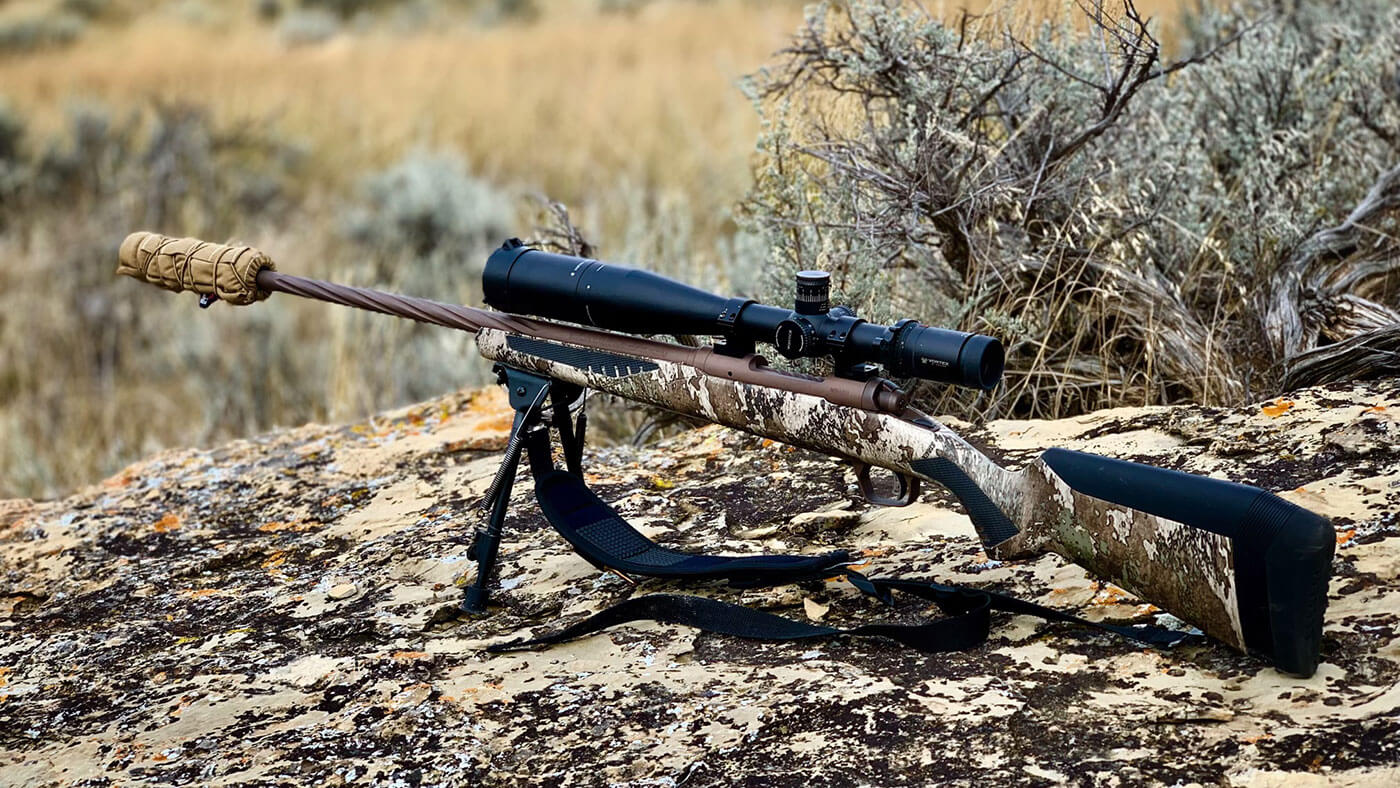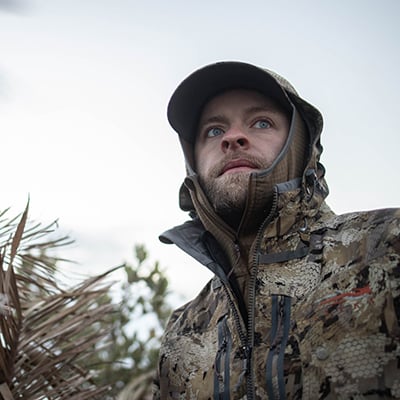- Savage Blog
- Advantages of Shooting Suppressed & Suppressor Ownership
Advantages of Shooting Suppressed & Suppressor Ownership

We’ve all experienced it; you are at the gun range or up on the mountain hunting when the shot breaks out. Your lack of hearing protection is immediately apparent. The ringing in your ears subsides, but was the damage done? As someone who grew up with perfect hearing but now relies on hearing aids I can tell you, yes, there was damage done. Little by little, day by day, it adds up until you find yourself struggling to hear. Protecting your hearing is one of the most important things you can do, and something that doesn't require a whole lot of effort. Like ear plugs and muffs, shooting suppressed is just another form of hearing protection. And, contrary to popular belief, they are readily available for the outdoor consumer, and they just might save your hunt, as well as your hearing.

Advantages of Shooting Suppressed
One of the most effective and simplest means of hearing protection is shooting suppressed. Suppressors, such as the Savage Accucan, reduce the noise at the source and make shooting an overall more enjoyable experience. The reduction in noise has a ripple effect on the shooter. Not only does it protect your hearing, but it also helps deter the dreaded trigger flinch, which is common among new shooters anticipating the shot. By shooting suppressed not only are you saving your ears but you’re also making yourself a more accurate and predictable shooter by allowing yourself to focus solely on the mechanics of the shot rather than the recoil or percussion of the round going down range.

In my personal experience, shooting the Savage 110 Ultralite with a suppressor is one of the best hunting setups you can opt for. Taking into consideration all the benefits a quieter rifle has for us as users, just imagine what it's doing for those around us while at the range or the animals in the landscape while hunting. If you’ve been hunting long enough, chances are you have experienced a miss on your target animal. Shooting suppressed may allow you the time to make an adjustment and get another good opportunity for a shot. Furthermore, the crack of a rifle across the canyon usually sends the animals into complete chaos, running up and over the ridge without a second of hesitation. That tends not to be the norm when shooting suppressed. I have witnessed time and time again while hunting that a suppressed shot at most makes an animal raise their head in acknowledgment of the slight oddity in what is normally a quiet atmosphere before returning to their routine of eating and mulling around.
Last fall, while mule deer hunting, I shot a buck with my Savage 110 High Country, sporting a suppressor. I dropped the buck in his tracks. The ten or so does that were with him never even flinched let alone realized he had been removed from the herd. I was able to sit back and watch them eventually feed up the canyon before making my way over to him to start the recovery process. Someone reading this may think, who cares if you bust the other deer? But let's think of a scenario where there may be two tag holders and multiple bucks on the hillside. Maybe it's a father and son duo out on their first hunt together. Being able to have the chance to experience a double with your son is something we all dream of. It is not guaranteed to always work out like the scenario I just described but just like playing Blackjack, you play the odds, and shooting suppressed dramatically increases your odds of beating the house.

Buying a Suppressor
It seems to me almost unfathomable how many avid outdoorsmen and women still think it is illegal to own a suppressor. Unless you live in California, Delaware, Hawaii, Illinois, Massachusetts, New Jersey, New York, Or Rhode Island, YOU can purchase and own a suppressor. Only those 8 listed states Prohibit Civilian ownership. There are a lot of factors to take into consideration when purchasing a suppressor, but I think the most important one is to investigate your gun safe and decide which rifle(s) you want to install it on. From personal experience I suppress everything from .223 on my AR platforms to 28 Nosler and most recently the 7mm PRC. I opted to get a 30-caliber AccuCan AC30 so that I could switch it back and forth between everything in my gun safe. While the tolerances of smaller calibers are much more forgiving and therefore not as efficient for noise reduction, I highly suggest this route for your first purchase. Later down the road as you add more suppressors to your inventory you can get caliber-specific suppressors to fit your needs.

Waiting for a Suppressor
The process of purchasing and owning a suppressor seems a little daunting but it’s not that bad. Most reputable dealers will assist you with the paperwork and filing the documents. You do have to exercise a little bit of patience though while you wait. The process to own one is as follows: First, you have to purchase your desired suppressor, (yes, that means paid in full), then you will need to complete all the required paperwork, to include finger prints and photos (again, many dealers offer this service right in their stores), after you have purchased the suppressor and submitted all the required paperwork you will have to wait for the super-efficient and expeditious work of the Bureau to complete the application and send you the Approved tax stamp. I have had wait times range from 16 months (thanks to the 2019 government shutdown) to my most recent 4 days! Don't let the wait times deter you from owning a suppressor, that time will pass regardless.
Head down to your local Savage Dealer, get an AccuCan, and just forget about it until you get your approval notification. This comes as your official warning though, once you shoot suppressed, never again will you want to shoot without one. The experience is simply unmatched.


